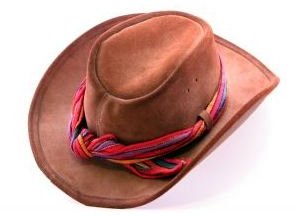Resume Sins: What to Avoid on Your Resume
What Does Your Resume Say About You?
Today’s tough job market brooks few mistakes. Your resume introduces you to potential interviewers, and it must create a favorable
impression whether you are applying for that opportunity of a lifetime, just a step up the corporate career ladder, or simply a job to tide you over until you find something better. Unless you’re seeking employment in a bad spaghetti Western, make the most of your GOOD points and take care to avoid these BAD and UGLY mistakes.
If you think I’ve just pulled these blunders out of Clint Eastwood’s hat, think again. Except for my reference below to the CNBC review, all these bad and ugly resumes have crossed my own personal desk space. Not good!
Presentation, Presentation, Presentation
Several years ago, CNBC presented a list of “the most unusual” resumes ever to see the light of day, as shared in a poll conducted by Harris Interactive for CareerBuilders.com. Some of them were hilarious—there’s a link in the resource section if you care to see them—but here we are starting with the first thing the interviewer sees when he takes your resume out of its envelope.
I’m talking about the paper, here, people, and face it—no matter how much you love teddy bears, you can’t type your resume on paper decorated with them. Also out is sparkle glue around the edges or a photo of yourself uploaded onto the paper. Do not spritz your resume with perfume—some people actually have done this, presumably something sexy suited to rouse the interviewer’s savage…whatever. Those things are NOT GOOD!
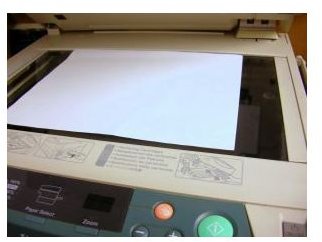
In a tamer vein but also verboten are resumes presented on 80-pound cardstock or those done on neon colored or even pastel paper. Perhaps you sincerely believe that such creativity will convince the interviewer that you have a bright personality or good sense of humor, or maybe you just want to make your submission stand out. Believe me, that’s not the way to do it.
Instead, use white paper, and nothing is wrong with standard 20-pound copy paper. Some people like to print their resumes on a quality linen or cotton paper, and as long as it is not embellished there is nothing wrong with that. However, most likely the extra money you’ve spent on the paper will go to waste since many HR managers fax or photocopy the resumes that interest them, and in the end the resume content is way more important than paper quality.
You Are Not Going to Save the Company
I actually received a resume with this objective:
I believe if you hire me I can show you what’s been wrong with your company …
This phrase was employed by a person who wanted to demonstrate his acute thinking skills. It was BAD, and the person remained unemployed a while longer for a couple reasons. First, the manager does not want such an aggressive approach except for certain positions such as time efficiency expert or body guard.
Second, people are hired to perform the responsibilities described in a well-thought-out job description. They are not brought on board with the expectation that they will overturn the company’s policies before they even integrate themselves into the corporate hierarchy. This is definitely one of the BAD things to put on your resume or in your cover letter.
Here’s My Name, Want My Number?
I am neither impressed nor interested when I receive a resume from someone with a ridiculous email address such as
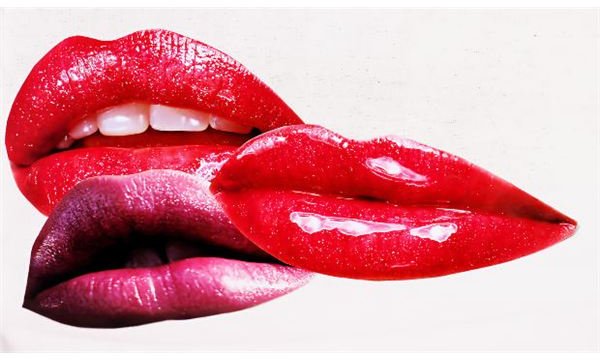
LoveToDance@whatevermail.com. If you have a silly, sarcastic or sexy contact ID, run—don’t walk—to Google or Yahoo! and open up a free account with an ordinary name. Believe me, BillyBarfs@wherever.com makes me wince and it’s UGLY! Just remember, once you put a new and improved email address out there, to check it regularly.
That brings me to your cell phone, which, strictly speaking, is not part of your resume. However, if you list your cell phone on the resume, then listen to your message before calling a number that comes up on your phone. I cannot tell you how annoying it is to answer the phone and hear the caller say, “Someone from this number called me.” I usually say, “I don’t know who it was, but if it’s important they’ll call you back.” And I usually don’t make second efforts to call job applicants.
I Object to Your Objective
It’s difficult to talk to you about creating a proper objective statement on your resume, because basically—I’m about to say—I really don’t care about anything in your personal life. I don’t want to know if you’re looking for a career to better yourself (What? You’re not already good enough?), if you plan on advancing yourself from this position (You mean you’re not going to stay in the position I’m hiring you for?) or anything altruistic and grand-sounding like that.
I also don’t want to know if you are “seeking to combine family logistics and career interests.” I could care less about your family. They’re going to get in the way of you doing your job! I once had a person’s stated objective as Obtain a professional position where the Lord says I am meant to be. Oh, Holy Moly, can you imagine my face when I read that? You can’t put that kind of stuff on a resume. That’s BAD!
Keep in mind that your career objective should be tailored to fit the position for which you’re applying, such as “Management position to increase customer satisfaction levels and coordinate efforts across departments” or “Project manager to coordinate budgeting, staffing, and scheduling issues across specified departments.” You can even leave the objective off your resume entirely, since most cover letters already express your objective pretty effectively.
Just What Is It You Do?
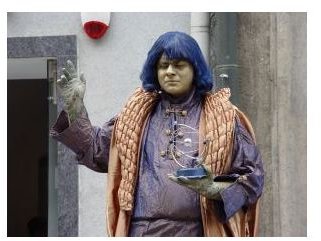
I think in this day and age of multitasking, you limit yourself when you include a skills section. I once had the privilege of perusing this list of skills: “Typing, Excel, Word, phones, belly dancing, cooking.” Okay, typing, Excel—what!! Oh, geez. In the trash that one went.
And one word about hobbies: Omit. That’s my word. I don’t care what you do and how you do it if it isn’t benefiting my bottom line. When you put something like _Hobbies: Reading, raising my children, ages 3 and 5, and helping my elderly mother cross the street…_hmmph, once again, that’s just UGLY.
Spell It Right!
The very first thing I do when I get a resume is proofread it. If I see any typos—any typos—that’s just UGLY, man, and I throw it in the trash. I actually threw away the opportunity to interview the person who wrote (as her unnecessary objective) I want an exciting job as an executive secratary with a lot of responsibility. Spelling isn’t brain surgery, and it’s simply UGLY to get it wrong like that. And every time you type the word “public,” be very, very careful. There’s an L in it.
Cover Letters That Expose You
Your cover letter is just as important as your resume, because the interviewer might (or might not) read it before looking at your resume. There’s nothing wrong with “Enclosed is my resume in response to your ad for a project manager, etc. etc.” I have actually received both of the letters below, changed somewhat to protect the guilty. They are both so BAD and UGLY I couldn’t pick just one to show you.
Dear Sir or Madam,
I am excited about the possibility of coming to work for your company. Recently I moved to this area after my wife died. I was blessed to discover a wonderful relationship with my sister-in-law while my wife was ill, and so the two of us have moved to Oregon and are eager to find employment. We will do any jobs that you have available.
And then there was:
To the Hiring Manager:
Recently I submitted my resume and it came to my attention that your receptionist was involved in an auto accident with me. I want you to know that the accident was her fault entirely, and I sincerely trust that you will not let this incident stand in the way of my application. Please let me know if I can supply you with any details to set your mind at ease.
Your Mission, Should You Choose to Accept It…
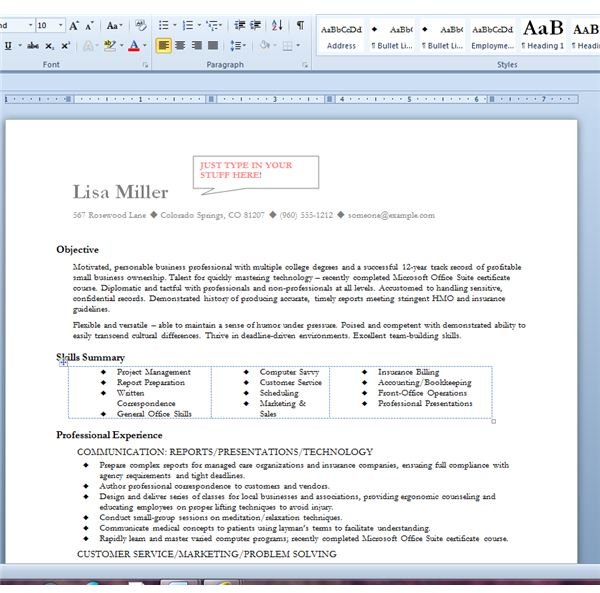
You can prepare an effective resume that will impress interviewers, even if your typing skills are minimal. If you don’t have access to a word processor, take yourself to your local library (equipped with a household bill as proof of address so that you can sign up for a free library card) and use its equipment. When you open Word, go to File, then New, and look at all the templates available. Under “New Resumes” I highly recommend “Functional Resume Sample”—it’s lean and clean, just what you need if you wanna be a contender. It’s GOOD.
Just include the meat, and leave out the potatoes. If you’ve had a lot of jobs, then—under the heading for experience—list only those jobs relevant to the position for which you’re applying. You can always list other stuff at the end under “additional employment.” Use effective statements to highlight what you did: “As administrative assistant, I reviewed budgeting definitions and discovered ways to utilize otherwise unspent grant money.”
I have one last piece of advice if the company invites you to complete an application—a sign that you are a step further into the hiring process. Do not write on the application, “See attached resume.” That’s BAD! The interviewer most likely already saw your resume, and you are being asked to transfer that information, basically, into the format that works best for their hiring purposes. That’s what I’m talkin’ about!
The Standoff
So, once you’ve submitted your resume, it’s basically the three of you standing in a circle … a real spaghetti Western standoff … you (Clint
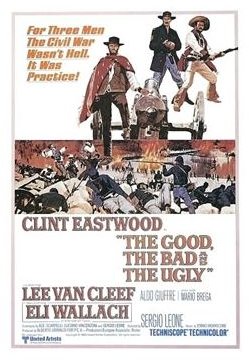
Eastwood), the HR manager (Eli Wallach) and the hiring supervisor (Lee Van Cleef). Since many companies move slowly, especially in times when filling any job involves a major economic decision, remain patient.
Send out your thank you notes—to everyone who interviewed you, and get their titles right. (I am neither amused nor flattered when I get a letter addressed to Linda Richter, President.) Any opportunity you have to put your name in front of their eyes again benefits you. The BEST applicant ends up with the pile of gold at the end.
References
- Hastings, Rebecca. Resume Refresher: Less Is More. Society for Human Resource Management (SHRM) at http://www.shrm.org/HRCareers/HRCareerResources/articles/Pages/shrm_060619.aspx
- Images
- sxc.hu, sue r b
- sxc.hu, kc0nvi
- Morguefile, Clarita,
- sxc.hu, bacon pola, Krakow’s street performer
- Template created by Microsoft as a Word template, modified by writer
- Wikimedia Commons, Movie Poster, The Good, the Bad and the Ugly
- Corsi, Jami. ‘Weekends Are For Drinking’ and Other Things Not to Say on Your Resume. CNBC at http://www.cnbc.com/id/18235454/Weekends_Are_for_Drinking_and_Other_Things_Not_to_Say_in_Your_Resume
